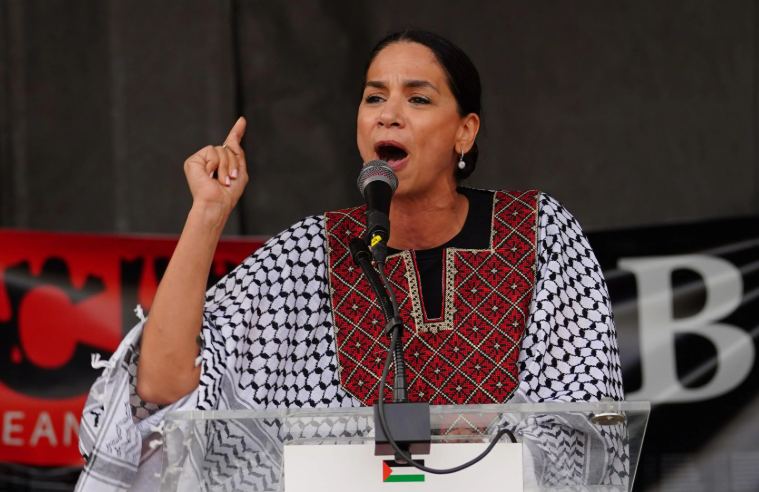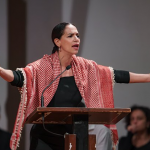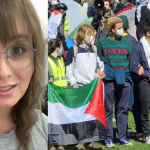Noura Erakat Wants to “Globalize the Intifada” — Here’s What That Actually Means
On April 30, 2024, Noura Erakat, the self-proclaimed human rights attorney — was tagged in an Instagram post by SJP.nb, showing a protest encampment tent painted with the slogan:
“Globalize the Intifada.”
This isn’t just activist artwork. It’s a violent political message — and one that Erakat has consistently amplified in both tone and substance.
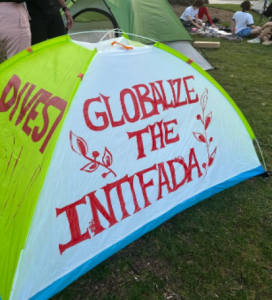
The word “Intifada” refers to two deadly Palestinian uprisings against Israel. While activists today like to whitewash it as “resistance,” the reality is far more brutal.
-
The First Intifada (1987–1993) involved stabbings, beatings, Molotov cocktail attacks, and the lynching of innocent Jewish civilians.
-
The Second Intifada (2000–2005) was even bloodier, marked by suicide bombings on buses, shootings in public places, and over 1,000 Israeli civilians murdered — including children and elderly.
When someone calls to “globalize” the Intifada, they are not talking about peaceful protest. They are talking about exporting terror.
They’re calling for mass violence, ideological warfare, and attacks on civilians in the name of political revenge.
And by aligning herself with that message — by embracing it, tagging herself in it, standing beside it — Noura Erakat makes her position clear.
This isn’t about justice. It’s not about liberation.
It’s about vengeance. It’s about blood.
And it’s about spreading the tactics of terrorism beyond the Middle East — into American campuses and communities.
Despite her carefully crafted public image, Erakat has repeatedly defended Hamas, glorified convicted terrorists, and attacked the very concept of Israel’s existence. Her legal scholarship is a tool not for peace, but for political warfare — weaponized to erase the Jewish state and excuse violence.
Final Word
Noura Erakat can speak before Congress and claim the moral high ground. But her record — and her social media — reveal the truth.
She supports the spread of terror. She supports global intifada. And she is using her academic platform to make that vision a reality.
This isn’t human rights work.
It’s radical incitement — and it must be called out.
